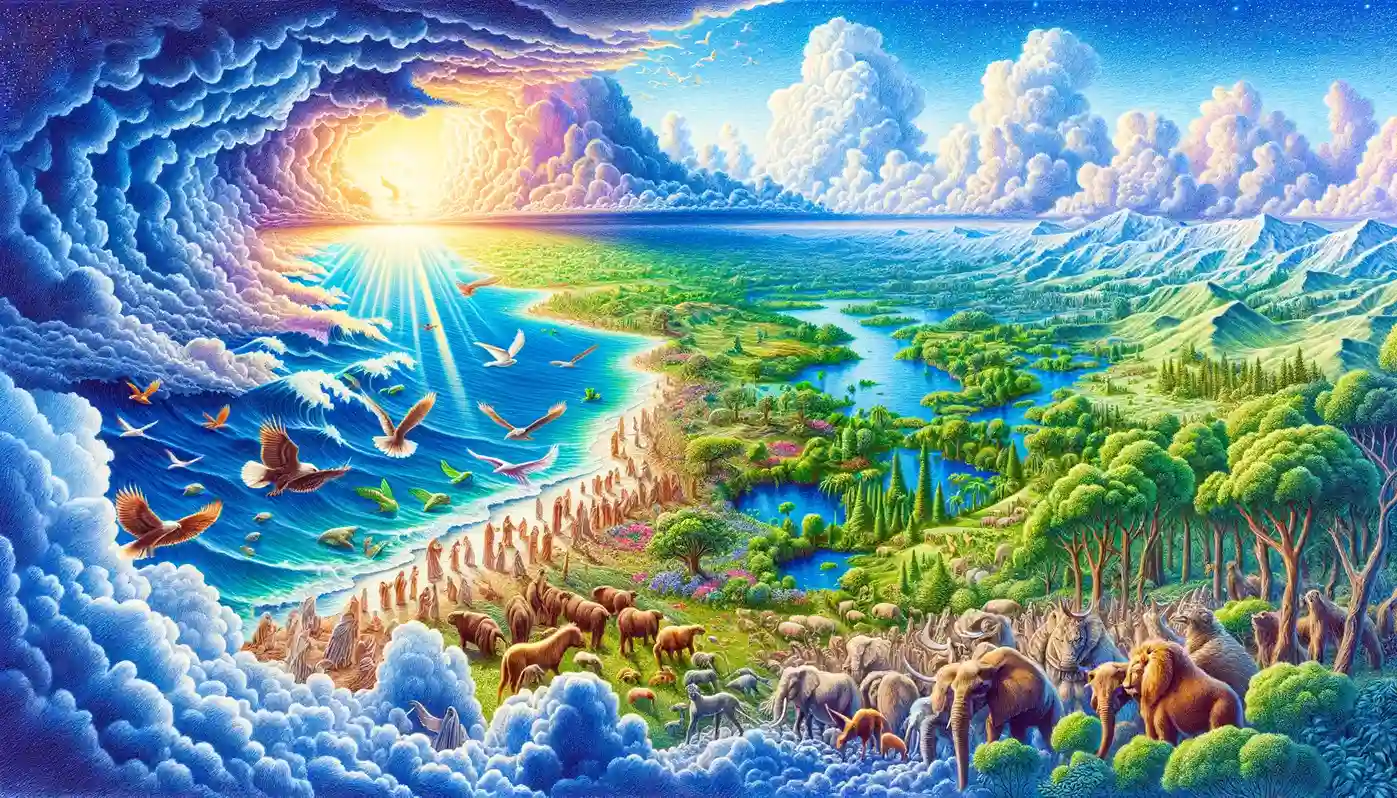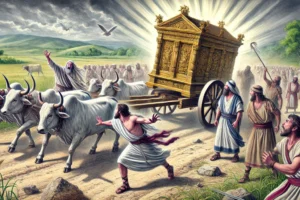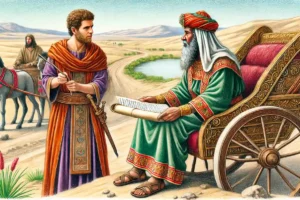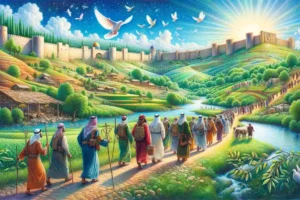
Creation of the World
Genesis 1 offers a foundational narrative in the biblical text, presenting a structured and symbolic account of the world’s creation by God. This chapter not only serves as a theological statement about God’s power and sovereignty but also sets the stage for human responsibility and stewardship within creation.
Quick Facts about the Creation of the World: Genesis 1
- Beginning of Everything: Genesis 1 narrates the creation of the world in six days, starting with “In the beginning, God created the heavens and the earth.”
- Order of Creation: Day by day, God creates light, sky, land, vegetation, stars, animals, and finally humans.
- Rest on the Seventh Day: After six days of creation, God rests on the seventh day, blessing it and making it holy.
- Method of Creation: God speaks things into existence, demonstrating the power of His word.
- Creation of Humans: Humans are created in the image of God, signifying their unique status in creation.
- Goodness of Creation: After each day of creation, God declares His creation good, and very good after creating humans.
Theological Context and Implications
- God’s Sovereignty and Creative Word: The repeated phrase “And God said” underscores the absolute authority and power of God’s word. What God speaks comes to pass without fail, emphasizing God as the ultimate authority over all things. This divine speech acts as a powerful force, shaping the cosmos out of formlessness and void.
- Structure and Order: The account is highly structured, moving from chaos to order. The first three days involve the formation of environments (light and darkness, sky and water, land and vegetation), and the next three days are about populating these environments (celestial bodies for day and night, birds and fish, land animals and humans). This reflects a worldview that values order, purpose, and planning, countering ancient Near Eastern creation myths that often depicted creation as a byproduct of conflict among deities.
- Imago Dei—Humanity in God’s Image: The creation of humans in God’s image (“imago Dei”) is profoundly significant. This concept suggests that humans share, in some capacity, the communicative, relational, and moral aspects of God’s character. It establishes the inherent dignity of all people and sets a foundation for ethical behavior and responsibility towards creation.
- Sabbath Rest: The sanctification of the seventh day as a day of rest introduces the concept of the Sabbath, which becomes a recurring and significant theme in the lives of God’s people. The Sabbath rest not only provides a model for human rest and worship but also signifies God’s satisfaction and delight in His creation. It is a divine invitation to humanity to join in rest and reflection, acknowledging God’s lordship over creation.
Scientific and Historical Insights
While Genesis 1 is not a scientific account by modern standards, its influence on the Judeo-Christian worldview cannot be overstated. It contrasts sharply with contemporary creation myths by avoiding anthropomorphic depictions of God and violent origins. Instead, it presents a God who plans and executes the creation with wisdom and purpose.
Conclusion
Genesis 1 is a theological treatise that uses poetic and structured literary forms to communicate profound truths about God, the world, and humanity’s place within it. Its emphasis on order, goodness, and divine rest offers a vision of the world that is inherently good and purposefully designed, governed by a God who is intimately involved in the welfare of His creation. This narrative has shaped countless aspects of Western thought, ethics, and the understanding of human dignity and responsibility.



